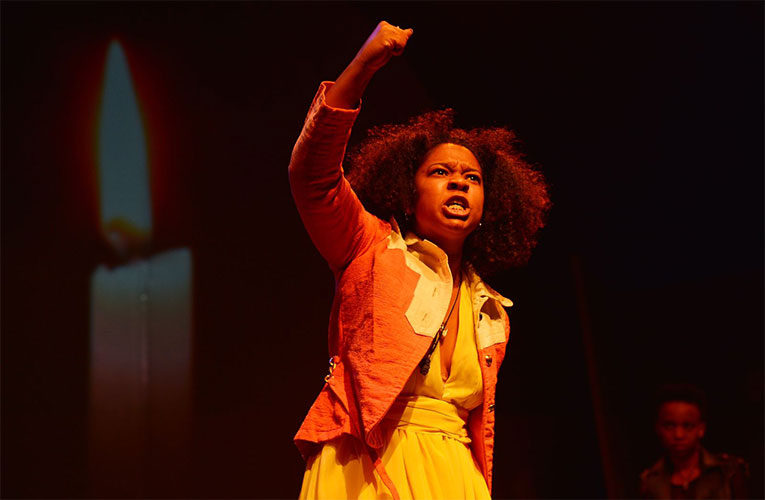Market Theatre celebrates 45 years, promising to bring back a thriving cultural hub in Newtown
By Edward Tsumele

Market Theatre on Saturday , June 19, 2021, hosted its official party marking the Theatre’s 45 years of existence and in which not only did the place become another effective front to fight apartheid culturally , but by time, a hub of the arts in the country. This Saturday party, was in fact the mark of continuous programming of celebratory events that will take place throughout 2021, a few select guests who attended the celebrations on Saturday were told
Before we get into the details of what happened or did not happen at the celebrations, let us look at the context under which these celebrations of a theatre milestone are taking place.
The celebrations on Saturday, because they took place against the background of a World pandemic, they could not take place in the usual manner such big events usually do. To start with the number of guests allowed into the venue were controlled, limiting them to the number allowed under the current health protocols of government.
This meant that many people who are relevant to the inspirational story of the Market Theatre could not be there, either for their own health risk considerations or simply because the theatre could only accommodate that many. This robbed the theatre of the big crowd that would have inevitably made the celebrations a buzzing event.
However the celebrations went smoothly, complete with inspirational speeches from management and the new council, buttressed by an interesting performance of a series of monologues, delivered by a young cast against the beautiful musical sounds from a lone pianist n stage.
It was during these celebrations however when it dawned on one that things have certainly changed over the years at the Market Theatre. Started by the late theatre director Barney Simon and veteran arts administrator, theatre producer and lighting designer Mannie Manim, in 1976, eight months after the Soweto Students Uprisings, so much has happened here over the years..
To start with, the Chief Executive Officer of the Market Theatre Foundation is a young black woman, Tshiamo Mokgadi who assumed this key role in the arts sector barely a year ago. She had previously worked at the theatre immediately after graduating from Wits drama school in the mid 2000s, then in a relatively junior role compared to what a few years later found herself in as the CEO of this historical theatre institution. So we can safely say the Market Theatre has a new young black CEO in charge, in Mokgadi.
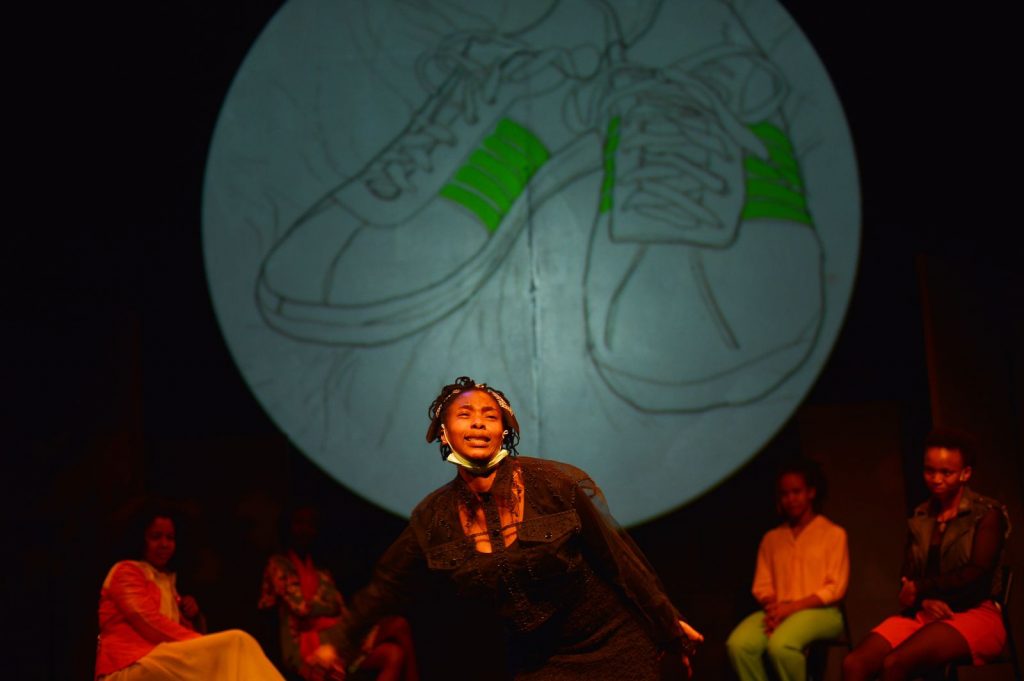
Secondly, the Market Theatre Council, has new council members led by media veteran Phil Molefe as council chairperson, charged with taking the institution into new heights for the five years that this council will be mandated to oversee the institution.
The other thing that is also new as compared to when the institution was started is the fact that the Market Theatre now operates as an agency of the Department of Sports, Arts and Culture, attracting some of its financial support from government. This is clearly a far departure from when the institution was started in 1976 up until late in democracy, when it relied solely on tickets sales and corporate sponsorship.
Thirdly the issues it has to deal with now in its programming are not as cut out as they were pre-1994, when democracy was ushered in and apartheid with its race based policies was banished into the dust bin of history. Then as an institution started on an ant-apathied positioning, its path was clear cut as it focused on fighting apartheid using theatre.
But in a free and democratic South African since 1994, with a majority black government in power, this means that the institution over the years had to recalibrate its new purpose and mission that would then inform its programming design. And in this regard, the institution has done pretty well, from Professor Malcolm Purkey, who retired from Wits where he was a drama professor to being the Market Theatre’s Artistic Director in mid 2000s to its current Artistic Director, theatre director and actor James Ngcobo.
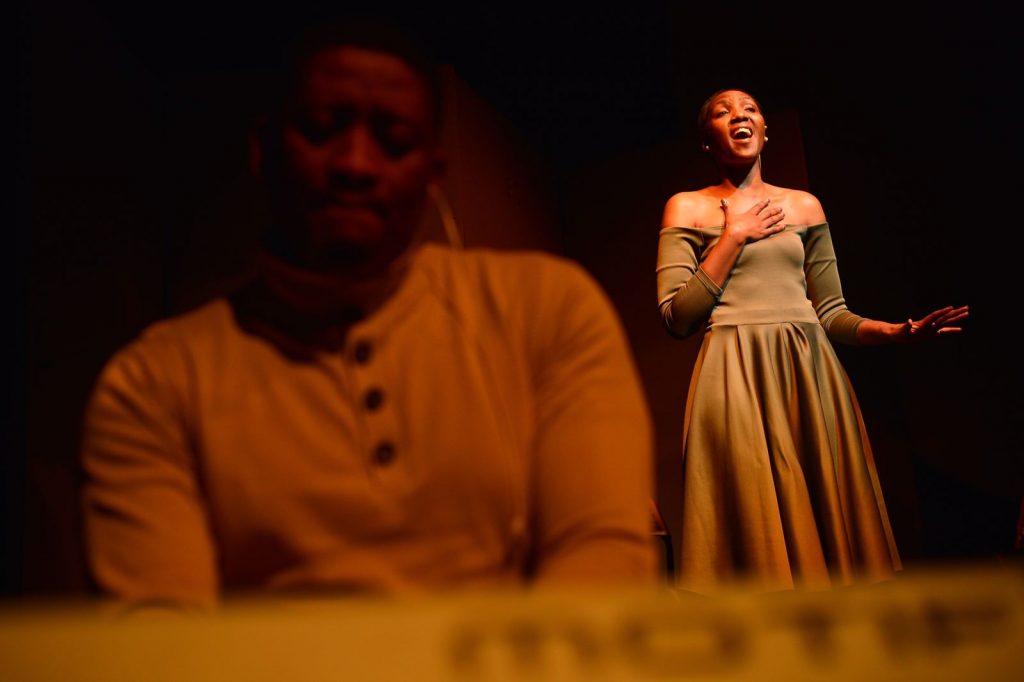
Ngcobo who is currently in his second five year term as Artistic Director, was in fact the theatre’s first black artistic director. The other artistic directors the theatre has ever had since its inception are Simon and Purkey, and now Ngccobo. Purkey during his time as Artistic Director saw several new , post apartheid South African plays take place there and a number of them won awards and were quite cutting edge, for Example the political satire Green Man Flashing by Mike Van Graan, and Graig Higgins’ plays Dream of the Dog (NAF Main, Market Theatre Johannesburg, Hilton Festival, Finborough London, Trafalgar Studios in the West End), and The Girl in the Yellow Dress (NAF Main, Baxter Theatre Cape Town, the Traverse Edinburgh, Live Theatre Newcastle, the Citizens Glasgow, the Stadsteater Stockholm, the Market Theatre, Salisbury Playhouse, Theatre 503 London, Next Theatre Chicago) , to name but a few.
Ngcob as Artistic Director has brought in pan African plays and African theatre from the Diaspora, cementing the theatre’s relationship with the rest of the African continent and the African Diaspora that has seen the Market Theatre for years now, hosting pan African theatre based on books and plays by African writers and black writers from the US. In fact that will form part of Ngcobo’s legacy at the Market Theatre as its first black Artistic Director.
And off course these celebrations took place under a global pandemic that has so far wreaked havoc around the world, leaving people dead, economies decimated and our social lives disrupted beyond imagination. For example the celebrations at the Market Theatre were somehow subdued due to the pandemic, from the number of attendees to social distancing imperatives that we had to adhere to throughout the celebrations. No hugging and handshakes from friends that had not seen each other since the pandemic broke out and lockdowns effected in South African in March 2020, for example. Clearly this pandemic is wicked.
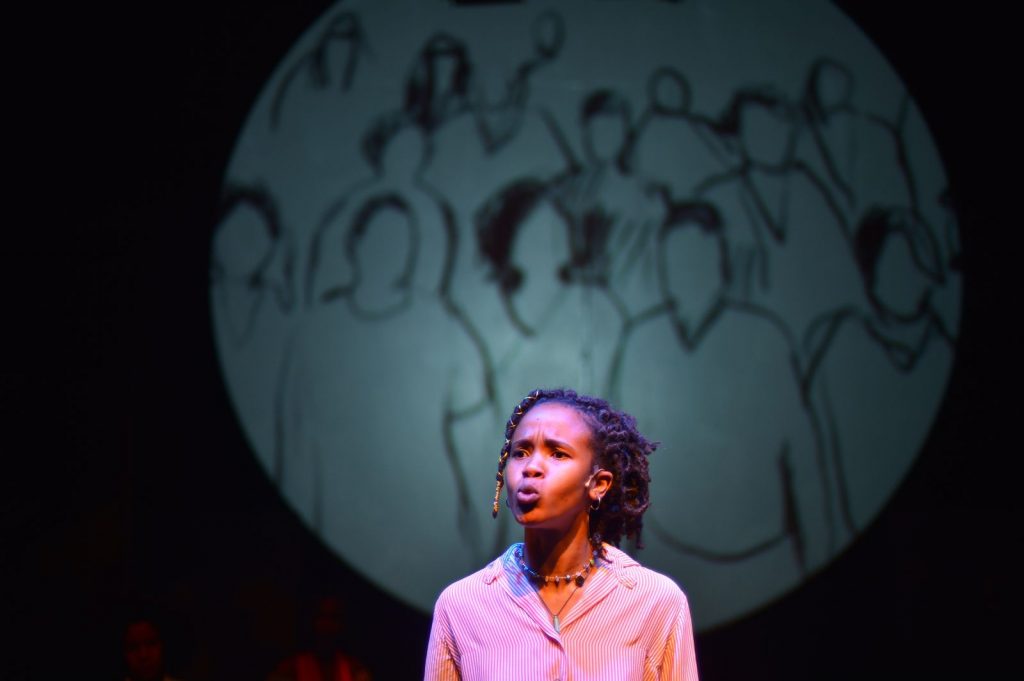
However fun, people had, even as they had to be cautious and observe health protocols. And the show, a monologue featuring young actors was simply brilliant, relevant and proper for new South African plays in a democracy. In those monologues we heard the story of violence, a young boy whose life was snuffed out in a township simply because he had bought new sneakers from his personal savings stretching over several years. This part speaks to the issue of crime in some townships and informal settlement.
In this one hour series of monologues, we had of how a Shona speaking mother from Zimbabwe lost her young son who was caught up in xenophobic violence as the boy played with his kite outside his home This monologue was meant to remind us of the problem of xenophobia in post apartheid South Africa.
We were also taken into the home of horror, a family where a terrible assault of a child by a step dad is taking place, again speaking to the scourge of child abuse and rape which are ever disturbingly present in contemporary society.
But not all was about news of sadness in this series of monologues, as we were also given a does of comedy to take home with as a character related how her mother had no sense of humour. This series was a real relief from the ever lingering coronavirus as the country is currently in the grip of the Third Wave of a resurgent coronavirus.
These monologues, devoid of the overtly political theatre associated with the market Theatre during the dark days of apartheid, simply remind us of the fact that time has changed, politically speaking, but contemporary South Africa still has issues to deal with such as inequalities, poverty and the scourge of abuse and rape.
All these issue in post apartheid South Africa have in different plays put up on stage at the Market Theatre in a democratic South Africa. And so the theatre is relevant today under different circumstances, as it was then in apartheid under also different circumstances of political repression, resistance and strife.
And the speeches from Tshiamo as CEO and Molefe as chairperson of Council, were short, sweet , inspiration and forward looking in their thrust and tone.
“When I made my maiden speech recently as the chairperson of the Market Theatre Foundation, I said that The Market Theatre should reach out to all the people who have over the years contributed to its success, reach out to all the African and global embassies in South Africa and say, support this institution to make it the cultural hub of the country for the next 40, 45 years from now,” said Molefe.
In short Molefe, who has occupied senior positions in the media over the years, including head of news and Acting Chief Executive at the SABC and Chairperson of the National Film and Video Foundation Council, before this new role, promised to bring back the old good days of Newtown, when the precinct was the place to be for a cultural dose and having a good time in Johannesburg.
Over the years, years even before the arrival of Covid-19, the precinct had somehow lost its kick as the area got neglected by various post apartheid administrations running the City of Johannesburg.
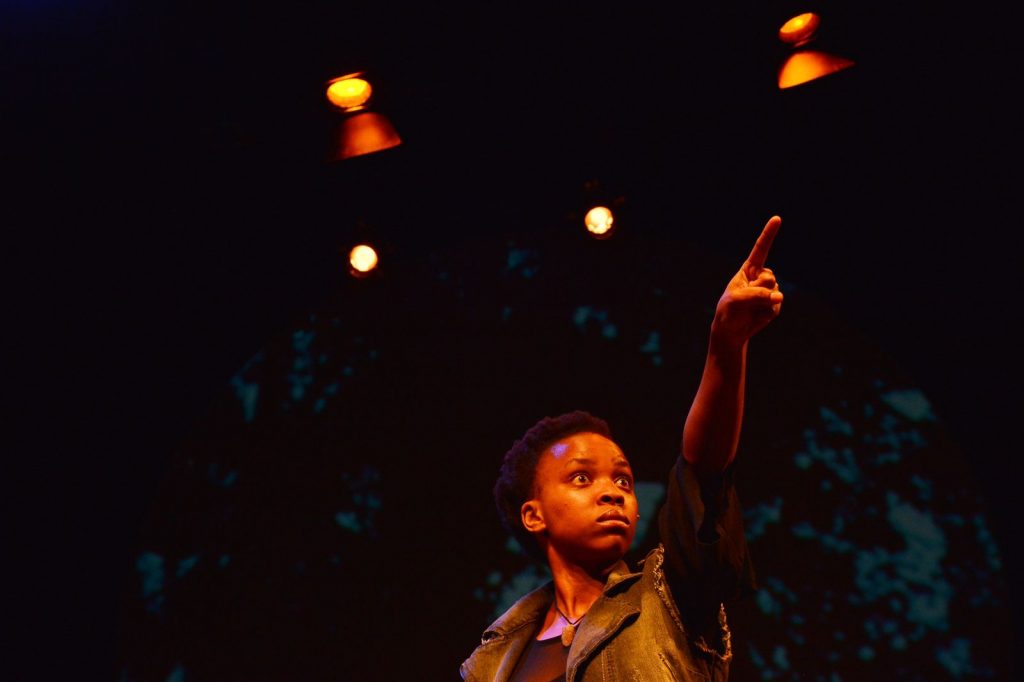
Today the Newtown cultural precinct cuts a sad picture of a shell of its former self. A number of buildings around the area are decaying or abandoned . Its streets smell of urine and stale beer. A nearby building that has long been abandoned is now a home for the homeless and some unfortunately some social misfits such as city criminal elements hiding among the homeless.
A nearby office block that was once thriving with urban adult station Kaya FM and the Gauteng Tourism Authority as anchor tenants, has long lost those clients to better areas and better environments.
The once thriving restaurant called Sophiatown which rented space on the property, known for hosting music and poetry shows as well as its Afro-fusion food dishes , has since closed its doors to the public, way back before the pandemic. Its owner Mzwandile Thabethe, who turns 42 this week, contacted me a few months ago from the UK to inform me that he had left everything and was now in the UK looking for new opportunities.
It would be therefore a great feat for the new Council of the Market Theatre Foundation If they can bring back those good old days to the area, of course cognizant of the current uncertain situation of Covid-19 in the country that restricts certain social interactions and theatre in general.
CITYLIFE/ARTS would like to say congratulations to the Market Theatre for the past 45 years of cutting edge production and grooming young thespians and photographers of the future at its two arts schools, The Market Theatre laboratory and the Market Photo Workshop, which were started in 1989, subsequent to the formation of the Market Theatre.










